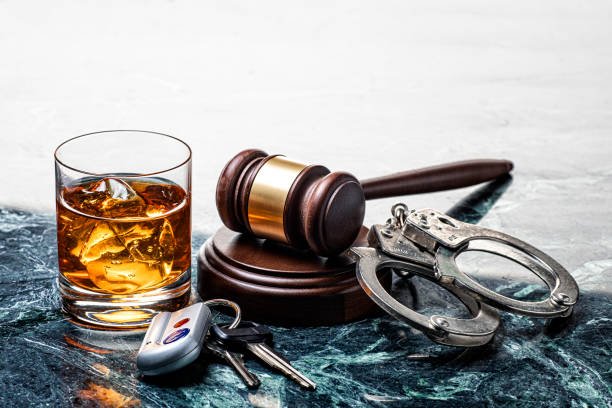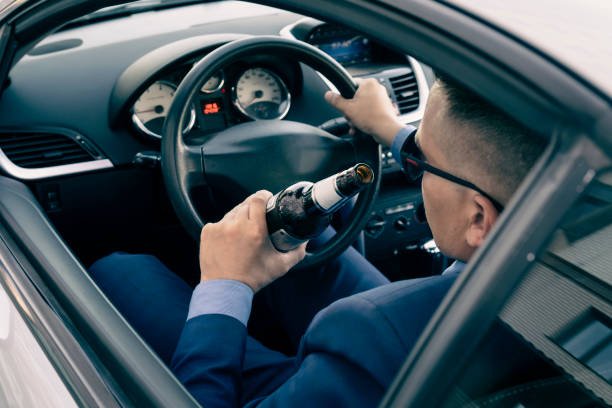According to The National Highway Traffic Safety Administration, approximately 32% of all fatal crashes in the United States involve alcohol-impaired driving. At the same time, The Center for Disease Control and Prevention also reported that about 37 people lose their lives daily in crashes involving drivers under the influence of alcohol, which translates to one fatality every 39 minutes.
Texas records the highest number of fatalities bordering driving under the influence (DUI) and driving while impaired (DWI) crashes in the United States, according to the available statistics, with a total of 25,261 crashes and 1,869 deaths in 2022 alone.
Experiencing a car accident can be shattering, even more so if it involves a drunk driver. In Texas, where the laws are strict regarding DUI, knowing the appropriate steps to take following such an incident is crucial for your safety, the potential legal outcomes, and your ability to receive compensation for any damages or injuries. Here’s a comprehensive guide on what to do if a drunk driver hits you in Texas.
Step 1- Ensure Safety First
Immediately after the accident, assess the situation. If you can, move safely away from traffic to prevent further accidents. Check yourself and others for injuries. Dial 911 to report the incident and seek a medical check, as injuries might not always be immediately apparent. If you suspect the other driver may be impaired by alcohol, report your concern to the police. This information will trigger law enforcement procedures, including administering field sobriety tests. The police will conduct these tests and document the incident in a formal report.
Step 2- Gather Evidence

While waiting for the police, if you are able, collect as much evidence as possible. Take photographs of the vehicles, any visible damage, the surrounding area, and any injuries sustained. Also, gather the names and contact information of witnesses. Their testimonies could be invaluable in court or during insurance negotiations.
If you suspect the driver is impaired, be aware of any attempts to conceal or destroy evidence, such as beer bottles or other items that could indicate their condition. Also, refrain from making any statements that could compromise your case, including apologizing or expressing regret.
Step 3- Exchange Information
Exchange contact and insurance information with the suspected drunk driver. Keep the conversation minimal, as emotions may run high. Refrain from discussing the fault or details of the accident; the authorities and your insurance company will sort this out.
Step 4- Seek Medical Attention and Care
Even if you feel fine, seeing a doctor after an accident is crucial. Some injuries, like internal injuries, may not show symptoms immediately. Medical records will be vital if you pursue a personal injury claim.
Step 5- Inform Your Insurance Company

Notify your insurance company as soon as possible. Provide them with the police report number, documentation, and other evidence you have collected. Your insurer will guide you through filing a claim.
Step 6- Consult with an Attorney
The driver suspected of impaired driving will probably dispute the charges against them. Consult with a personal attorney who specializes in DUI accidents. They can provide insights, help you understand your rights, and represent your interest in dealings with insurance companies or courts if necessary. An experienced Texas drunk driving legal counsel can also help you secure the maximum compensation for your damages and injuries.
Step 7- Follow Up on Your Case
Stay informed about the progress of your case. Contact your lawyer and insurance claims adjuster to ensure your case progresses. If the case goes to court, be prepared to attend and provide testimony if required.
DUI/DWI Laws in Texas
Texas maintains a zero-tolerance policy for DUI and DWI cases. As outlined in the Texas Penal Code, a blood alcohol concentration level of over 0.08% is liable to be charged with DWI for persons above the age of 21. If a minor (under 21) is found with any alcohol in their system, they can be charged, even if the concentration isn’t up to 0.08%.
The Foundation for Advancing Alcohol Responsibility advocates for stricter laws and penalties for individuals convicted of DUI. The organization emphasizes the importance of holding accountable those who choose to drive while intoxicated, as this behavior poses significant risks to themselves and others on the road.
Liability in alcohol-related accident cases in Texas
In Texas, the comparative negligence law assigns proportional blame to every driver involved in an accident. If impaired drivers are found to be negligent, they will bear some or all liability. In a case of gross negligence, punitive damages can be sought to punish the driver’s reckless behavior.

Even if the drunk driver was not convicted or charged, you could still pursue damages under the “preponderance of the evidence” standard, which requires showing that it is more likely than not (over 50%) that the driver was impaired based on all reasonable evidence.
Additionally, in some cases, other parties may share responsibility. Under Texas’s Dram Shop Act (captured by the Texas Alcoholic Beverage Code), an establishment that serves alcohol may be held liable if it is proven that it served an intoxicated person.
Following a DUI or DWI offense, you can expect to face one or more of the following consequences:
- Driver’s License Implications: Your license may be suspended or revoked, potentially requiring an SR-22 to restore it.
- Community Service: As part of your sentence, you may be required to complete community service, which involves performing tasks that benefit the community.
- Financial Penalties: You will likely face a monetary fine ranging from several hundred to several thousand dollars.
- Insurance Consequences: Your car insurance premiums will increase, and in some cases, you may lose coverage altogether.
- Jail Time: You may be sentenced to jail, the duration of which is dependent on the jurisdiction and the severity of the offense.
- Ignition Interlock Device: You may be required to fix an ignition interlock device (IID) on your vehicle. This device ensures that you have a blood alcohol content (BAC) of 0.0% before the car can be started.
Conclusion
Experiencing a drunk driver on the road can be a frightening experience, but taking the proper steps afterwards can ensure your safety and your legal rights. Always prioritize safety, seek medical attention, and consider legal counsel to navigate the aftermath effectively. Remember, drunk driving is a serious offense in Texas, and the law is designed to protect victims.
